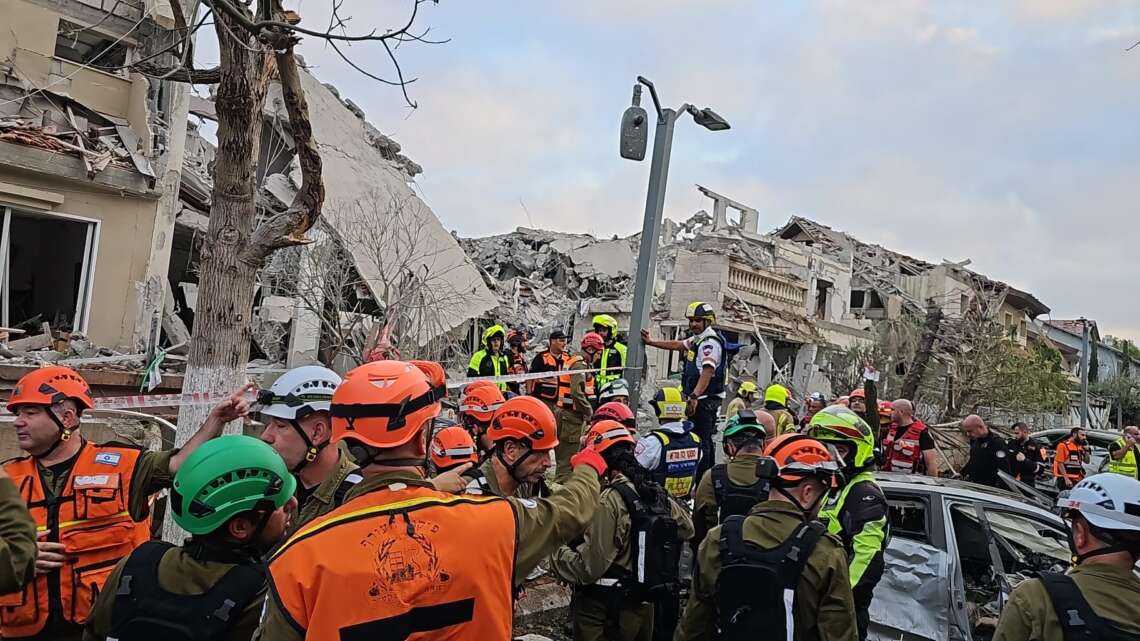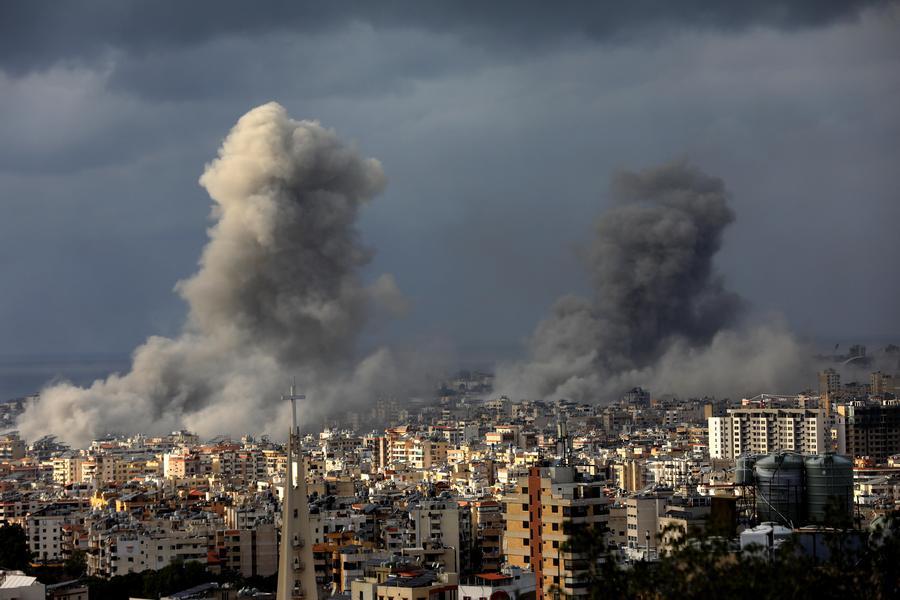Direct hits on residential buildings spark fear, injuries and urgent international concern as tensions reach new heights
At least two civilians were killed and more than 60 others injured in Israel on Saturday as Iran launched a fresh wave of ballistic missile attacks targeting residential neighbourhoods, in what marks a sharp and dangerous escalation in the ongoing conflict between the two nations.
The latest barrage, confirmed by the Israel Defense Forces (IDF), struck multiple areas across central Israel, including densely populated neighbourhoods in the Gush Dan region. Emergency medical responders described scenes of chaos and devastation as homes were destroyed and civilians caught off guard by the assault.
Magen David Adom (MDA), Israel’s national emergency medical service, confirmed the death toll and outlined the extent of the casualties in a series of official statements throughout the day.
“Two individuals lost their lives, including a woman in her 60s who was found unresponsive at the scene and a 45-year-old man who succumbed to his injuries after being evacuated in critical condition,” said an MDA spokesperson. “Our teams provided life-saving treatment and transported dozens more to nearby hospitals.”
Among those injured were several people in serious or moderate condition, including victims suffering from blast trauma, shrapnel wounds, and psychological shock. In one incident alone, MDA teams evacuated 21 injured individuals to hospitals such as Wolfson Medical Center, Sheba Tel Hashomer, and Shamir-Assaf Harofeh.
In a separate attack in the Gush Dan region, another 34 people were treated by emergency personnel. That included a woman in her 60s in critical condition who was taken to Beilinson Hospital, and a man in his 60s who was seriously wounded and evacuated to Sheba Medical Center. Several others were treated for moderate to light injuries, including injuries caused by debris and panic-induced trauma. Over a dozen individuals were treated for acute anxiety attacks following the strikes.
The IDF confirmed that Iran’s missile campaign included direct ballistic attacks — a significant escalation from recent skirmishes and drone incursions. Air raid sirens rang out across central Israel on Saturday morning, prompting residents to rush to bomb shelters as multiple impacts were reported.
The IDF’s Home Front Command has since issued updated instructions allowing civilians to exit shelters but warned residents to stay within immediate reach of safe zones in case of additional launches. Sirens remain active in several parts of the country.
This latest attack is seen as a direct response to weeks of rising tension between Tehran and Tel Aviv, including covert operations, proxy skirmishes involving Hezbollah and Hamas, and tit-for-tat airstrikes in Syria and Lebanon. Saturday’s missile strikes are the first confirmed direct Iranian missile attack on civilian targets within Israel’s heartland since the start of the current conflict cycle.
Israeli authorities have placed the country on its highest security alert, with military and emergency units mobilised across urban centres. Reinforced IDF patrols, anti-missile defence systems, and emergency protocols have been activated in anticipation of further strikes.
Prime Minister Benjamin Netanyahu held a high-level security meeting on Saturday afternoon with Defence Minister Yoav Gallant and senior IDF officials to assess the situation and determine a response.
Though there has yet to be an official Israeli retaliation, military analysts suggest a significant response may be imminent. “This marks a red line,” said Dan Shapiro, a former US Ambassador to Israel and Middle East analyst. “The targeting of civilian areas by Iran represents a dramatic and dangerous escalation — one that could ignite a broader regional conflict if not contained.”
Meanwhile, international reaction has been swift, with European and US officials calling for restraint and expressing deep concern over the humanitarian impact of the strikes. “We condemn the targeting of civilians and urge both sides to step back from the brink,” said a spokesperson for the European Union’s foreign policy office.
The United Nations has also called for an emergency Security Council meeting to discuss the escalating violence, as global powers watch the situation in the Middle East with increasing alarm.
As night falls on Israel, residents remain on edge, bracing for what could come next. Emergency services, hospitals, and civil defence forces continue to operate at full capacity, with hundreds of volunteers joining first responders in relief efforts.
With no sign of de-escalation and a highly combustible regional environment, the fear remains that Saturday’s attacks may be only the beginning of a wider and more devastating confrontation.








